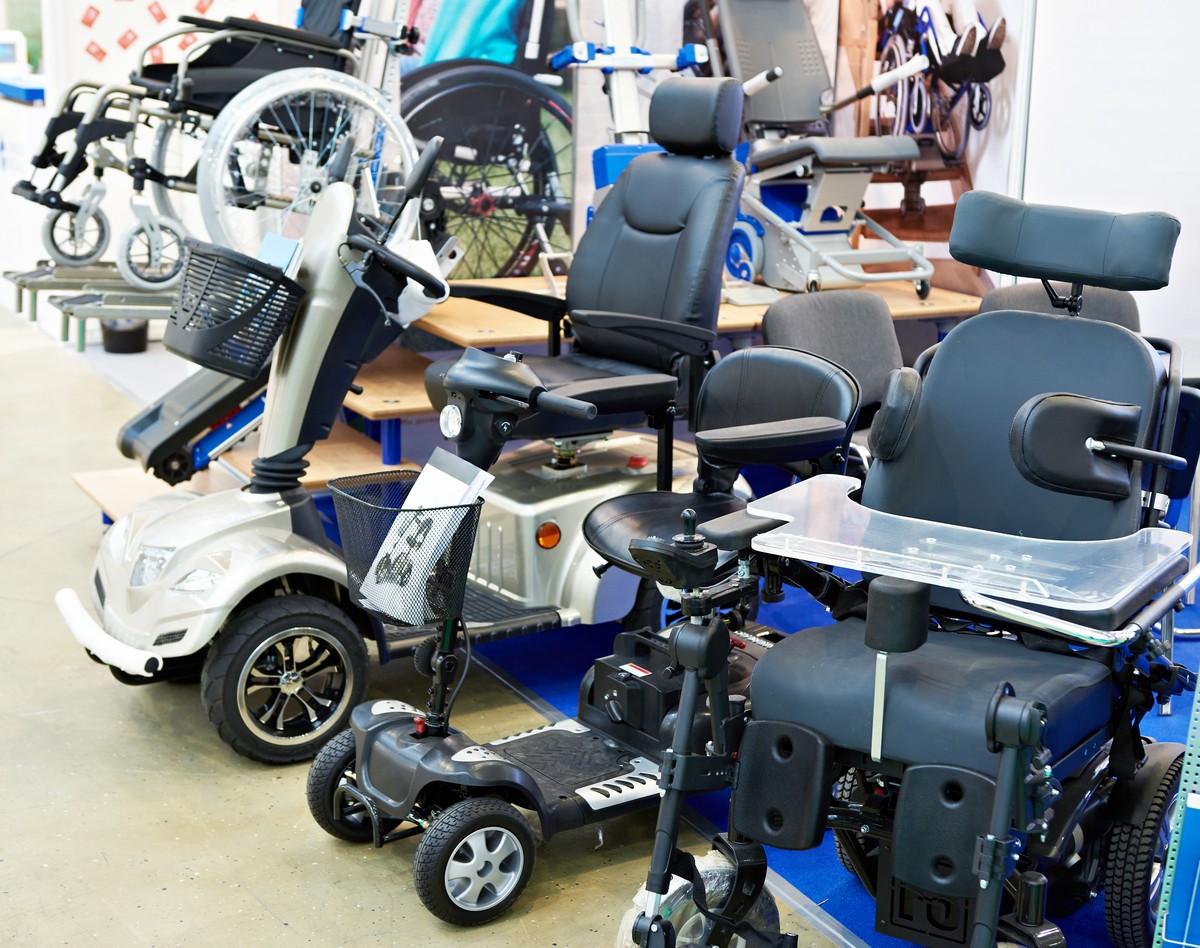Introduction
For people who have limited mobility, mobility aids are a great relief. However, with mobility aids, people are faced with a slight yet significant dilemma – choosing the right one. In many cases, the choice is narrowed down to two options: power wheelchairs or mobility scooters.
Although similar, these two mobility aids have distinguishing features and functions which set them apart. It is important to note that neither of these options is universally better than the other. Rather, the choice ultimately boils down to personal choice and preferences.
What Exactly is a Power Wheelchair?
A power wheelchair – like many other mobility aids – is a device that aids mobility for people who have problems moving around. It is quite different from the traditional manual wheelchair. A power wheelchair usually comes with a control joystick for manoeuvring and controlling the movements of the device. It is designed in such a way that it requires very little effort to control. One does not need to move his/her arms to control this device. As such, it is best suited for people who have limited mobility in the upper part of their bodies or would fatigue very quickly if propelling a manual wheelchair.
Advantages of Power Wheelchairs
Power wheelchairs come with a few pros or advantages. These include:
- Travel: Power wheelchairs can easily be used to travel fairly long distances. They can have a range up to around 20km on a charge, so they can more than handle most people’s daily activities. Traveling to another state or country? You can easily take your power wheelchair along with you, anywhere you go.
- Adaptability to tough terrains: Most power wheelchairs are designed for outdoor use, and some are specifically designed for tough terrain. Thus, regardless of how rough an area may be, one can still use their power wheelchair seamlessly and smoothly.
- Does not require much effort to operate: Power wheelchairs do not require much effort to operate. They come with simple controls that can be activated with just a light touch.
- Powered Seating options: Power wheelchairs can come with various powered seat functions, which can allow the seat to tilt, recline, elevate or even to move into a standing position. This can allow the user to independently change their position to rest or to move into a position which better suits certain tasks.
Disadvantages of Power Wheelchairs
- Batteries: Power wheelchairs require batteries to operate. As such, they do need to be charged regularly to make sure it’s ready when you need it.
- Cost: Many power wheelchairs are more expensive than mobility scooters.
What is a Mobility Scooter?
A mobility scooter has some similarities to a wheelchair. However, it is designed to look just like a scooter. It has about three or four wheels and requires a good balance to operate. However, they are larger than wheelchairs and typically are less manoeuvrable.
Advantages of Mobility Scooters
- Can be easily assembled: Most mobility scooters can easily be assembled without stress or strain.
- More cost effective: Scooters are often more cost effective than some power wheelchairs.
- It’s not a wheelchair: Often people prefer a mobility scooter simply because it isn’t a wheelchair.
Disadvantages of Mobility Scooters
- Too large: Most mobility scooters are too large to be carried around. As such, they need to be hitched to the back of a car or placed in a large van. They are often too large to use in home environments or other areas with small spaces.
- Not compact: Mobility scooters are not compact and cannot be used for trips, especially air travel. Thus, users may find it difficult to manage when they need to travel.
- No supportive seating: Mobility scooters are designed for users who don’t require a lot of support in their seating. If you require specific support for comfort or positioning or may do so in the future, a power wheelchair would better suit you needs.
- Little personalisation: Although many different types of mobility scooters are available, they often cannot be customised to your needs. A power wheelchair can be set up to suit your needs perfectly.
- Ride Quality: Many mobility scooters come with little or basic suspension, so you can have a rough ride when using it on outdoor terrain. Power wheelchairs often have more advanced suspension.
Power Wheelchairs vs Mobility Scooters
As stated earlier, these two mobility aids may share some similarities but they equally have distinguishing features.
Power wheelchairs have a wide range of custom settings which lets the wheelchair be set up to suit an individual’s needs, both now and into the future. They can also be used easily in tight indoor environments and outdoors. On the other hand, mobility scooters are more suited for outdoor use.
In the same vein, power wheelchairs are specifically designed for people who need them for most of their mobility needs. For example, a power wheelchair is designed for the user to be able to operate it around their home, travel to a shop, café or restaurant, for example, and also use the power wheelchair within those spaces. This is quite different from mobility scooters which are mainly for outdoor use and mobilising over long distances, and designed for the user to use when travelling to a destination, such as a café, and then leaving the scooter outside.
In terms of operability, power wheelchairs have the upper hand as they are very easy to operate and do not require much effort from the user. On the other hand, mobility scooters require one to have a good balance in order to operate it properly.
From these distinguishing features, it is clear that these two mobility aids have their own advantages and cons. Thus, one’s choice should be based on preference and some other relevant factors.
Factors to Consider Before Making a Choice
Before choosing between a power wheelchair and a mobility scooter, it is important to consider several factors. Some of these include:
- Needs: Before making a choice, it is important to determine what your exact needs are. Do you have limited mobility in your upper body or lower body? What do you need a mobility aid for? For people who have limited mobility in their upper bodies, a power wheelchair may be the right choice. On the other hand, people who have less serious mobility problems might consider a mobility scooter.
- Financial capability: One’s budget and financial capability should equally guide his/her choice. In some cases, funding schemes such as the NDIS or insurance may cover part of the expenses. However, if this isn’t the case, then one may need to choose the mobility aid that best suits his/her budget.
Making a choice may seem confusing but once you consider the important factors and the distinguishing features between these two mobility aids, it will be considerably easier to choose.
For more information on mobility aids and other related issues, contact us at GTK. Here, you can speak with an expert about all your mobility-related problems. Need information or expert consultation about mobility-related issues? Contact us today!



